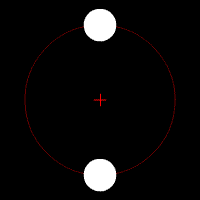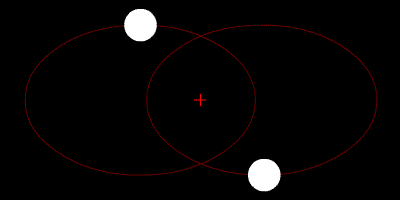Celestial bodies and gravitational effects on the Earth
I am doing some research for a science fiction novel. I need to have a planetary body around 10,000 km in diameter appear in the Solar System near the Earth and proceed to orbit it artificially. I want to know how close the planetoid could get before it would before it would apply catastrophic effects on tectonic plates, magnetic fields, all tides, etc. I want to aim for a point where it would be in equillibrium with the Earth. Assume the planetoid's mass was Earth-like scale.
It's a tough one, but any help would be appreciated. Thanks!
This post was sourced from https://worldbuilding.stackexchange.com/q/12704. It is licensed under CC BY-SA 3.0.
1 answer
A few scenarios could occur.
A near miss
If the object is from outside the Solar System, then its velocity may be greater than the Solar System's escape velocity, which could mean that its velocity is greater than Earth's escape velocity. In this case, a close encounter could perturb Earth's orbit, but it would have to go really close to cause any significant future impact.
The only way that Earth's magnetic field could change would be if there was a direct impact. The processes causing it are internal, and could not be affected by a quick pass from an external object. On the other hand, any interaction with the Moon could lead to a drastic change in tides.
A direct impact
It's safe to say that everything on Earth would be impacted (pun intended).
Orbit
This is what you're looking for. For this to happen, the object would have to slow enough that it wouldn't escape Earth orbit. Perhaps an encounter with another planet slowed it down, in which case that planet's orbit would be perturbed a bit (depending on the perturbed planet's mass - Jupiter would not be affected as much as, say, Mars).
If the thing's in Earth orbit, it won't affect the magnetic field. It will absolutely affect tides, no matter whether or not the Moon is still there (although I would guess the Moon would be flung out of the unstable three-body system).
10000km is on the same scale as the diameter of Earth. The body wouldn't be orbiting Earth, rather they would be orbiting each other.
The only error there is that mass is what matters, not size. Earth and this object would share a common barycenter, but neither would be dominant over the other. Not counting the Moon, the system would look like one of these configurations:
I think the second is more likely, given the way the configuration was formed.
Earthquakes would absolutely be triggered. Well, perhaps not absolutely, but it makes sense. After all, the Earth can trigger Moonquakes. This object should, therefore, be able to trigger earthquakes.






















0 comment threads